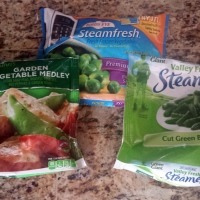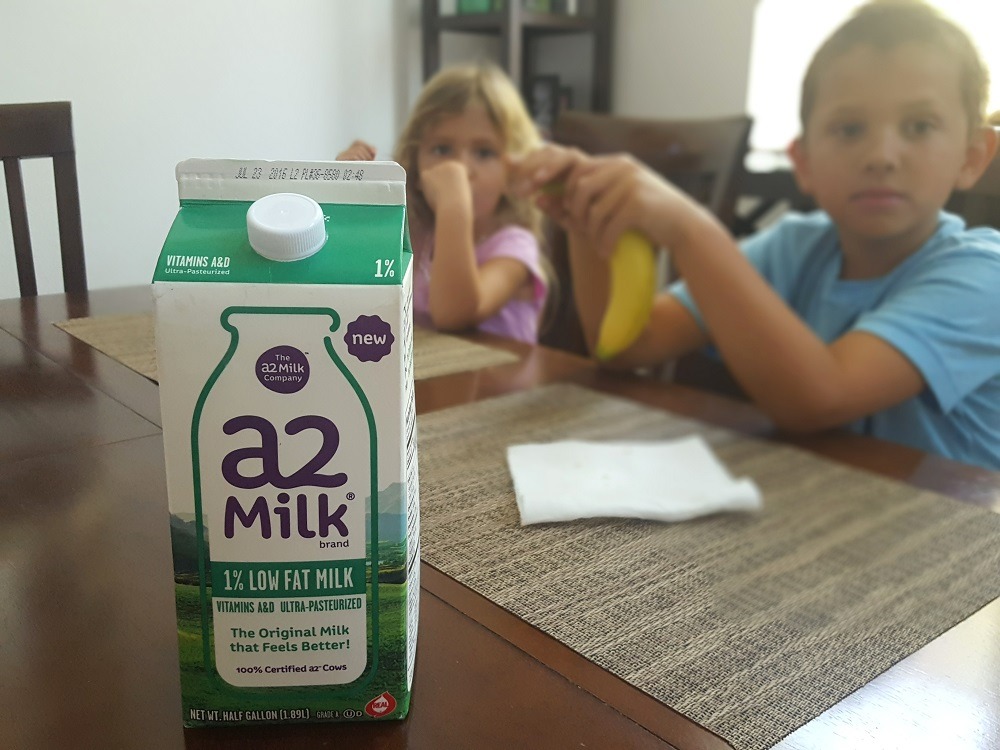This is a sponsored post written by me on behalf of The Frozen Food Foundation for IZEA. All opinions are 100% mine.

As a busy mom, I constantly struggle to find balance between feeding my family healthy foods and managing my time effectively. We belong to a CSA and I love getting fresh produce every week, but sometimes I take to the freezer for meals as it’s often easier when you’re in a rush. No food prep, no lengthy cook times, just pop something in the microwave and presto! I’m not talking frozen pizzas and TV dinners, but there is a wonderful selection of frozen fruits and vegetables at our grocery store that I love to stock up on. My daughter LOVES green beans (on most days at least), and I don’t always feel like prepping and cooking them when we have a million other things going on. I buy frozen bags that steam in the microwave and it’s perfect. They last quite awhile frozen in case her green bean phase take a pause, and they still have equivalent nutritional content to fresh green beans. And honestly, the selection of fresh green beans at our local grocery store isn’t all that great anyway! I’m careful to read labels and ensure that I’m always buying foods with the best nutritional value, whether fresh or frozen, and I feel this has been a great solution in our household.

I’m sure many moms like me wonder about the nutritional value of frozen produce like I often have, and I might have the info you’ve been searching for! The University of California, Davis, recently partnered with the Frozen Food Foundation to conduct a study to investigate the nutritional qualities of frozen fruits and vegetables as compared to their fresh counterparts. For the study each fruit and vegetable was analyzed both frozen and fresh-stored. Frozen produce was analyzed within 24 hours of harvest and after 10 and 90 days of storage in a freezer while fresh-stored produce was analyzed within 24 hours of harvest and after three and 10 days of storage in a refrigerator. This unique study revealed that frozen fruits and vegetables are in fact generally nutritionally equal to – and in some cases better than – fresh fruits and vegetables. So we can all rest easy and feel comfortable taking advantage of the convenience and affordability of purchasing frozen produce for our families.

Fruits and vegetables are major contributors of essential nutrients in our diets, and consuming fruits and vegetables is associated with reduced risk of many chronic diseases. Given the increase in the rates of chronic diseases among all age groups, eating a diet rich in a variety of colorful fruits and vegetables is more important than ever. Yet, nearly 80 percent of Americans fail to consume the recommended amounts of fruit, with nearly 90 percent failing to meet dietary recommendations for vegetables, so we need to do whatever we can to eat more of these foods, whether fresh or frozen. Freezing fruits and vegetables is nature’s pause button and it’s an easy way to combat things like the cost of fresh produce, the cost of fresh ‘out of season’ produce and issues like fresh fruits and vegetables spoiling before you’re able to prepare and eat them. Frozen produce also offer consumers convenient, affordable and easy to serve options that help simplify meal preparation, like it does for me when my daughter has a craving for green beans!
Learn more about the Frozen Food Foundation and connect with them online:
Frozen Food Foundation Twitter
Frozen Food Foundation Facebook



